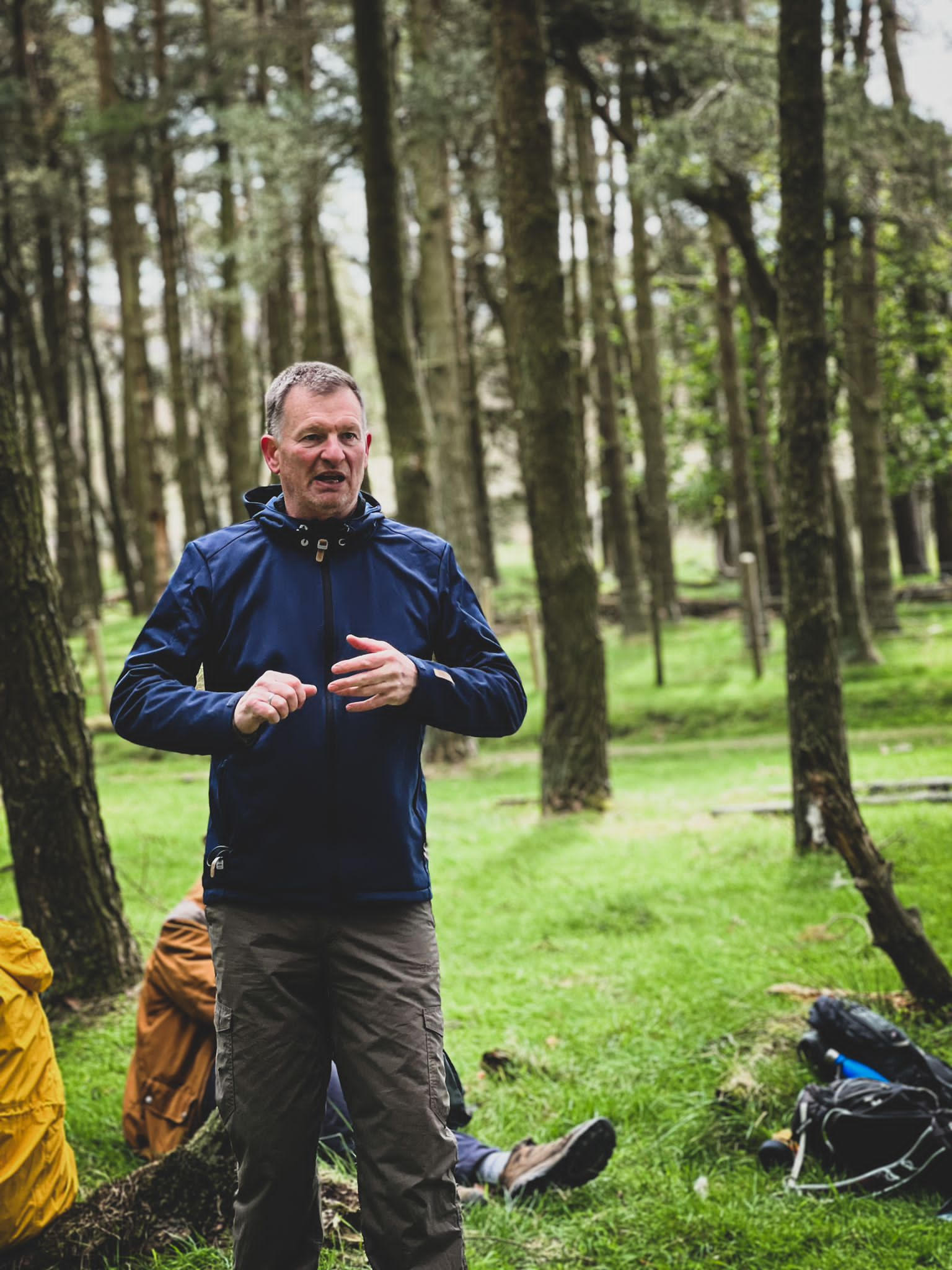Walkshops director, Martin Murphy introduces a three-step process (1) Realign (2) Rehumanise (3) Rewild to kick-start a journey to becoming or, more accurately, returning to being more collaborative, creative and purpose-focussed humans.
It is now known through a multitude of studies, that people with a sense of purpose are more relaxed in the face of challenges and as such are more resilient. Which, when you think about being a purpose-focussed business, it is really important in the tricky and transformational times we find ourselves in.
As humans, we are hardwired for purpose, we want to understand the ‘Why’ and we enter ‘flow-states’ more easily when working on meaningful projects.

However, this is not always possible.
Even when we are pioneering a new path towards these higher ideals, the present paradigm throws up barriers. We might be inspired to build a better world. We might aspire to be socially just and sustainable. But motivation trumps both aspiration and inspiration. Dopamine fuelled motivation drives the economy.
‘Who Cares Dares’
Many people do care enough to put up with the hardship and resistance from the status quo, to make a planet and society fit for future generations not just for people, but for all species living on earth. But pioneers have to be ‘masters of both worlds’.
You and your team have to be successful in this paradigm whilst building the next, otherwise, you’ll fall prey to the effects of stress and anxiety caused by uncertainty and economic hardship.

So, the future is unknown and nobody has the complete answer. It’s a case of sensing and feeling our way forward. Evolving from entrepreneurial mercenaries to inspirational leaders on a mission. Most businesses are spiritually MIA (Missing in Action). They’re motivated by profit only.
We need to realign and epitomise our sense of purpose so that if they cut us in half it will say ‘I AM’. We are Inspired to serve our community. We Aspire to be better humans. Moreover, we’re Motivated to achieve a mighty mission.
It’s helpful if the whole team are involved in building a Mission Power Compass at the beginning of the journey so that they can all make the ecological decisions they need to.
We can put this kind of exercise at the heart of a Freshwalks Walkshop.
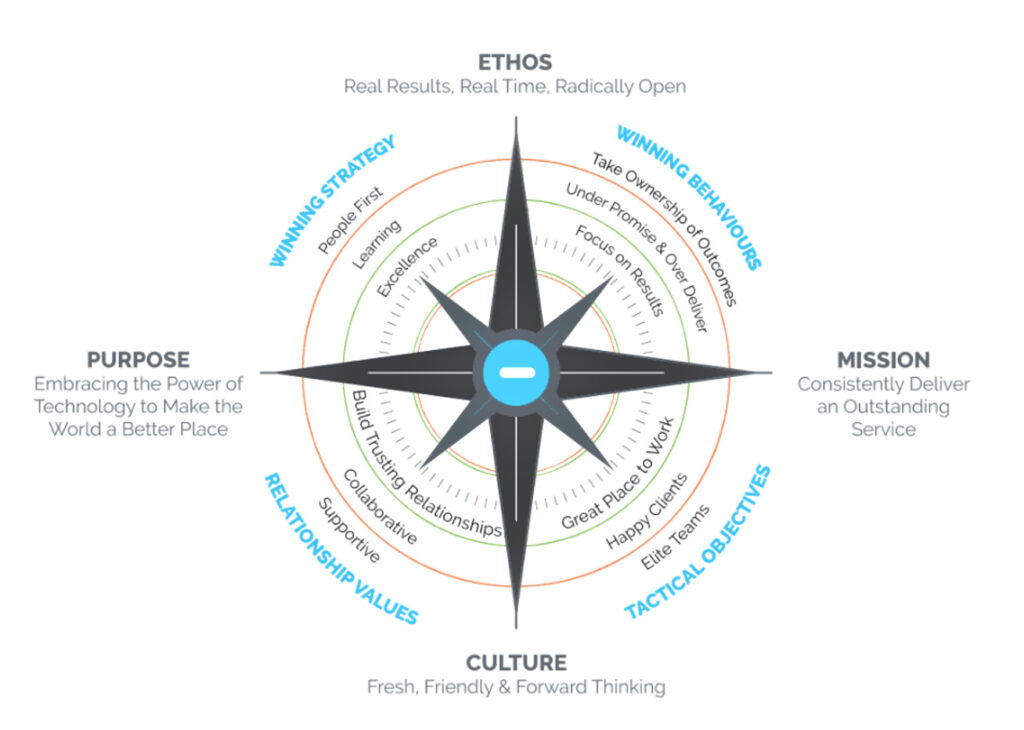
Example of a Mission Power Compass
Capitalism is about competition but it’s got one major thing wrong with its philosophy.
Ideas compete, people collaborate.
Our DNA might well contain 95.8% monkey, but we’re 99% hunter-gatherers. Those hunter-gatherers collaborated their way to the top of the evolutionary tree. We see evidence of this when we look at big organisations. Whenever an organisation or country needs to get something vital accomplished, they develop ‘special project’ teams or in the case of the military, the SAS.
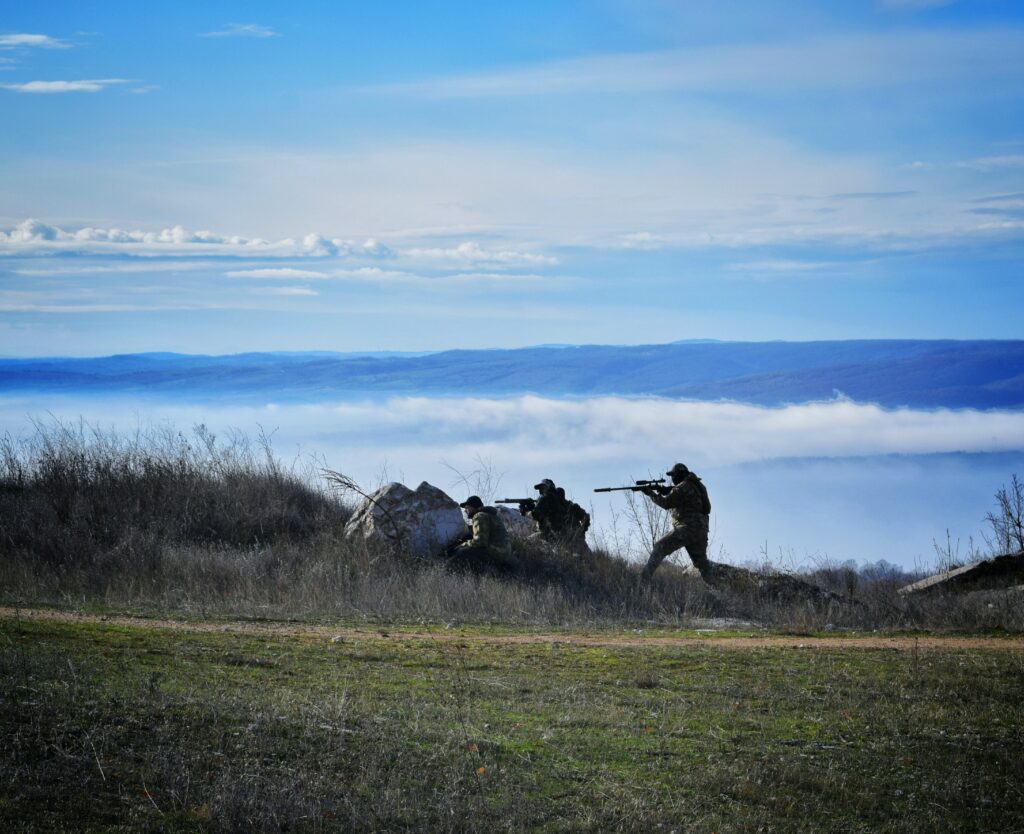
These Super Teams operate like the highly successful super-organisms that we find in the wild.
They share purpose and share success.
Their skills are unleashed and they self-manage.
They constantly seek potential opportunities.
They’re egalitarian.
They’re open and contain high levels of trust.
People are beginning to show interest in self-managing teams, DAOs and employee-owned businesses. But this is just the way humans have evolved to become the custodian species of the planet. Dominance behaviour is part of our primate ancestry that we evolved away from. It was re-introduced when technology was invented 12,000 years ago. Before that, we lived in balance with nature and ourselves for 250,000+ years.
We need to get back to being human if we want to succeed going forward.
In cities, most of our natural instincts go into hibernation. But as soon as we spend some time in nature, our hearing sharpens, our eyesight improves and our sense of smell helps us appreciate the subtleties of our environment. If our palaeolithic ancestors were wild, we are veritably domesticated by comparison. But not in a good way. Yes, we’ve benefitted from increased health and ease of living. We might be living ‘slightly’ longer, but expensively.
The cognitive repertoire of humans far exceeds that of all other animals as a result of 3.8 million years of evolutionary engineering. But it’s not designed for the world we’ve created. We are at odds with our surroundings, and if it’s not killing us, it’s certainly making us unhappier and unhealthier. We evolved for a world radically different to the one we live in. Our eyes were made to scan vast horizons and bathe in sunlight, our lungs built to breathe deep gulps of clean air.
While our environment has evolved rapidly, our bodies haven’t kept up and we now live completely at odds with the world around us. Like fish out of water, we’re mismatched.
Just as zoo animals develop different illnesses than their wild relatives, so too are humans developing society-driven illnesses such as obesity and depression. We are tigers in cages, birds behind bars and dolphins in swimming pools.
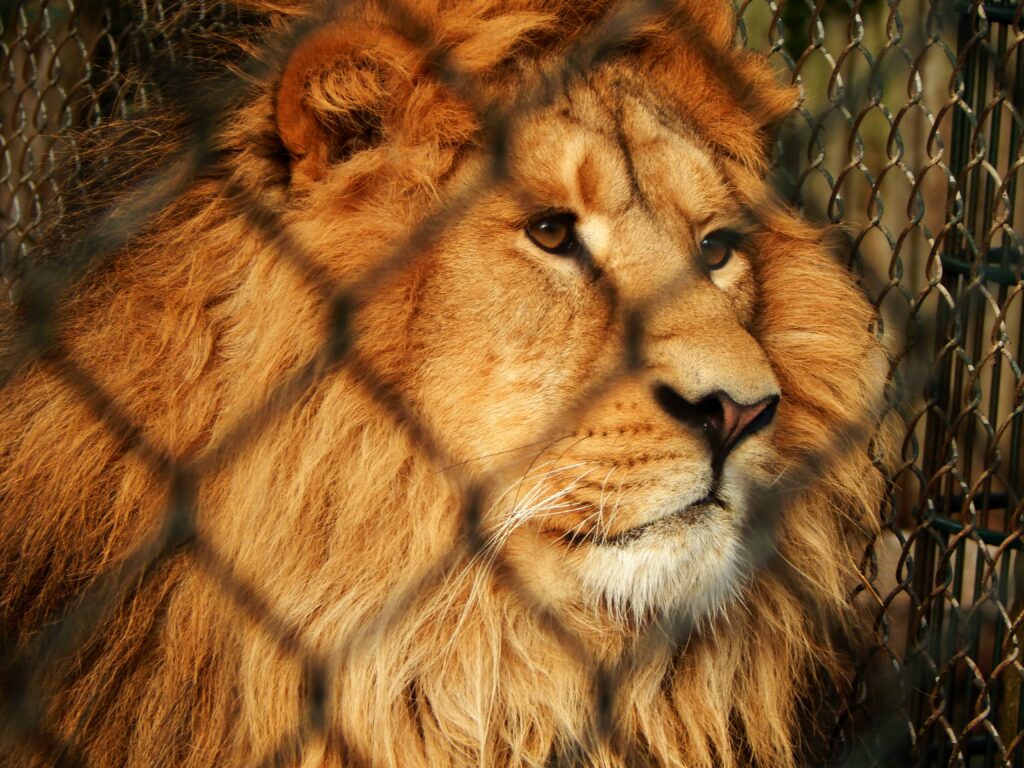
We’re subjected to fake lighting; we’re not spending much time outside in the context in which our visual system evolved which messes with our circadian clocks.
Instead of protecting people as we exist now, why not restore them by connecting them to the environment to fully realise their human potential? The genes and traits we carry evolved over millennia to help us survive in a world of mountain vistas, and hidden valleys, not cubicles and cable TV.
Our posture signifies how we’re feeling and it’s hidden in our language.
We’re hunched over iPhones and laptops and we feel “downright sad!”
This is because when we’re looking down, we do begin to feel sad. When things are ‘looking up’ we feel better. A baby will stop crying if it looks directly upwards.
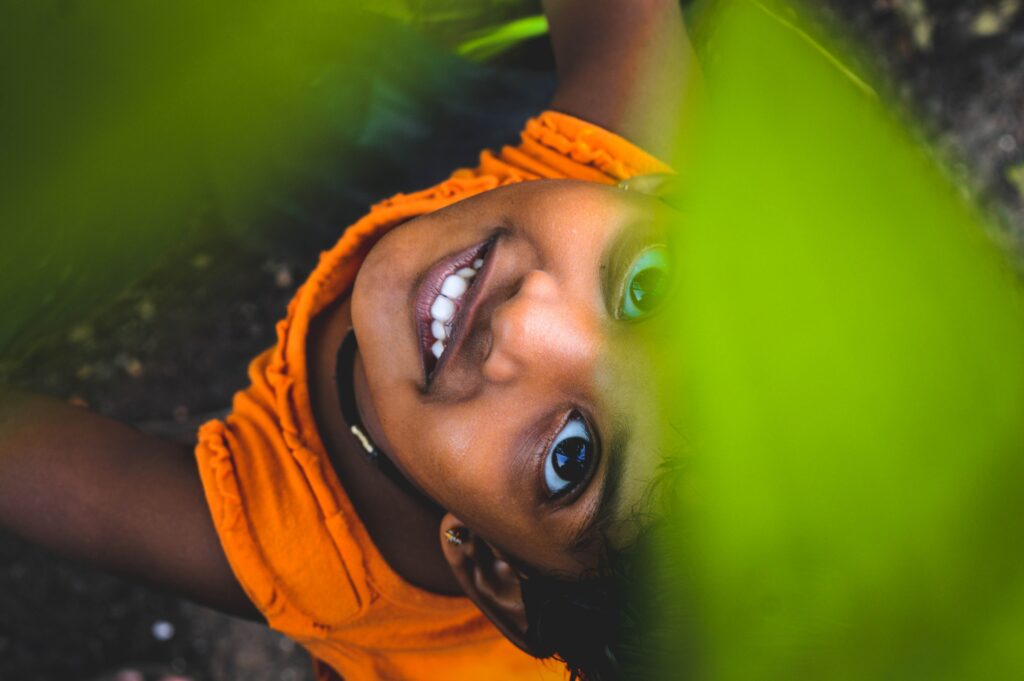
We need to be outdoors and walking in the hills because this delivers a neurotransmitter high which will match any street drugs or anti-depression pills.
By getting out and truly engaging with nature we will find life much more thrilling and fulfilling. Importantly, you’ll gain an understanding of how to integrate your rewilded lifestyle into your everyday life. You’ll be more creative, and healthier (even doctors are prescribing outdoor activity). You’ll also find this goodwill spreads out to your relationships at work, with family and with the community.
See you on the hills soon.
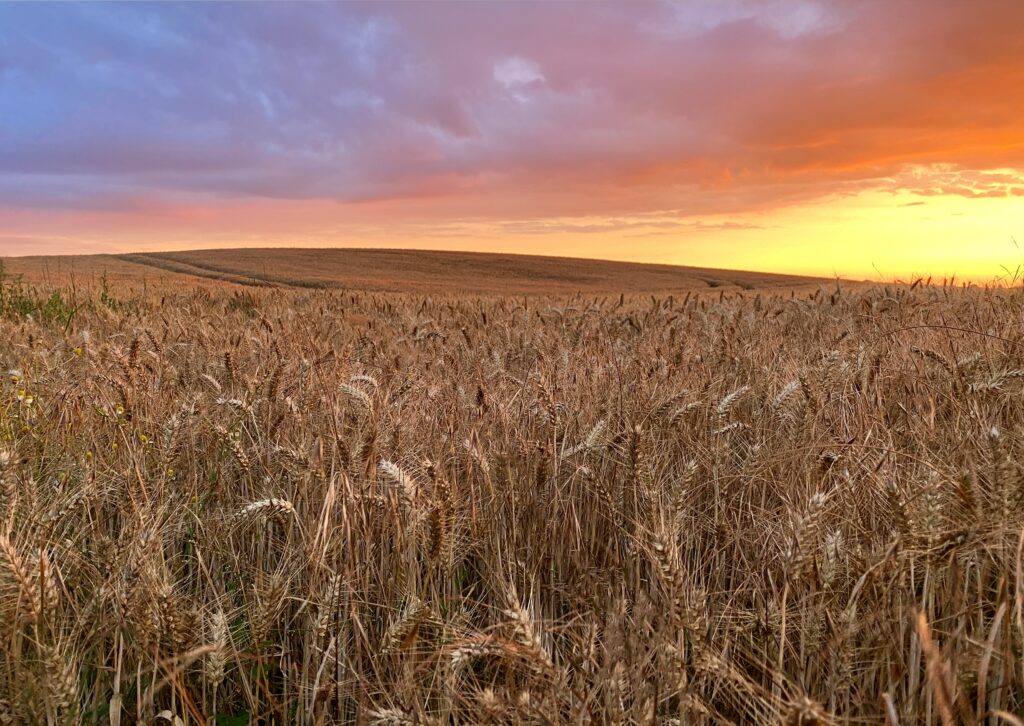
Martin Murphy’s adventure begins with joining the military and being selected as a walk leader on an expedition to the Himalayas. After exploring the foothills of Kangchenjunga, he was taught how to survive in the jungles of Brunei by the Iban ‘ hunter-gatherer’ community and the SAS. This experience later led to ‘Murph’ becoming a member of the Special Forces. These days he coaches leaders and embeds the ‘Super Teams’ concept in organisations. He leads Freshwalks Walkshops and corporate retreats. He’s the author of ‘From Mercenaries to Missionaries’ an aide-memoire to practical leadership and teamwork in the complex times we face and he’s a qualified Mountain Leader.
